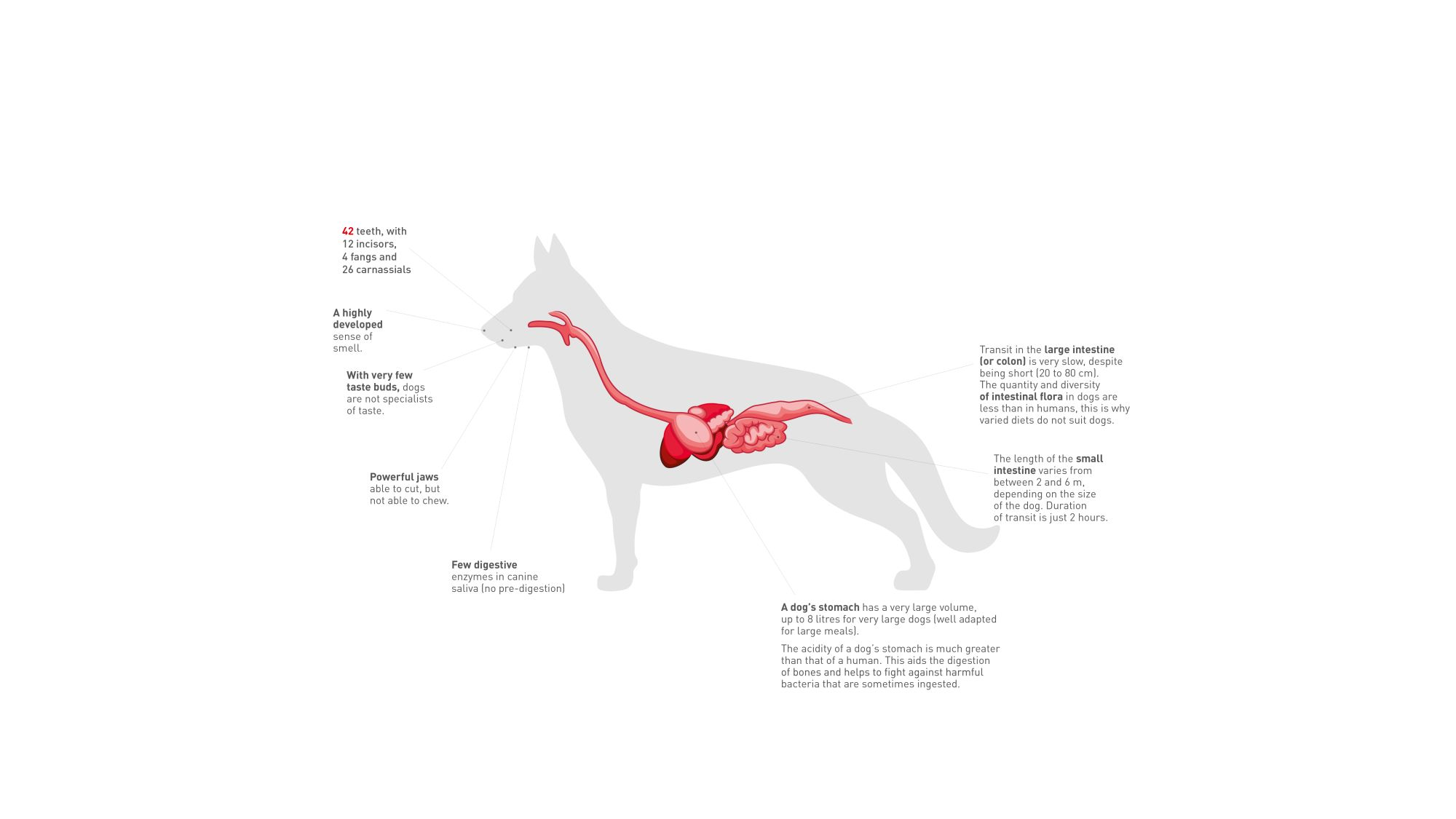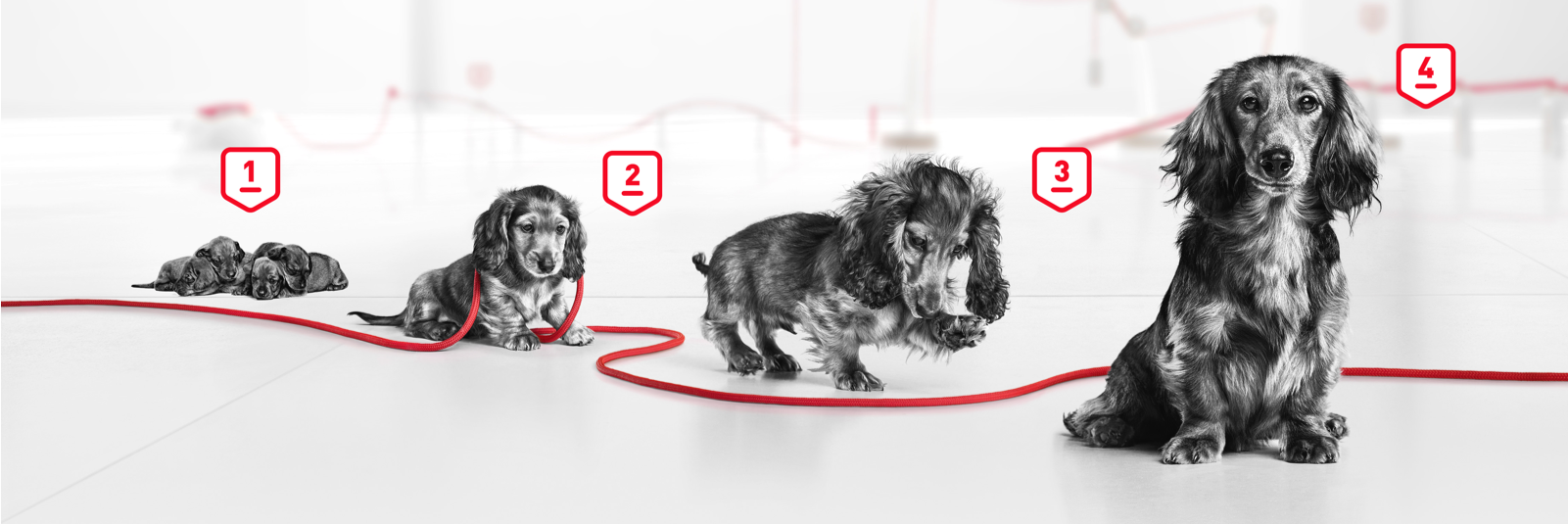Puppy microbiota
Article
How does your dog's digestive system work?
In dogs, digestion starts in the stomach where digestive enzymes are released, right after the food is (quickly) swallowed and has passed through the oesophagus. The small intestine might be called small, but it provides a large surface area to allow the nutrients to be absorbed by the body. Finally, the large intestine transports the waste to its final destination, back to the outside world.
This complex process, which usually takes up to 9 hours, has one main goal: to give the dog’s body the nutrients it needs to function and grow healthily. But to be turned into nutrients, the food needs to be highly digestible. Another reason why your dog’s digestion is important is that any undigested food can ferment in the intestine and disturb the digestive microflora balance, ultimately resulting in diarrhoea, nutritional deficiencies, and other health issues.

But, what’s the role of microflora you ask? Well, it’s composed of a variety of bacteria, which when well-balanced contribute to protecting the dog’s health and assisting the digestive process.
Why securing healthy digestion in puppies is so important?
Puppies aren’t adult dogs yet, which means their digestive system is still fragile and does not have the digestive enzyme efficiency of a grown-up dog yet. This means that at first, their stomach can only process their mother’s milk, or a similar content substitute milk and a lot needs to happen as they grow so that they can ultimately start digesting solid food. At the time of weaning, a puppy’s digestive capacity is not yet fully developed, compromising the quality of the digestion, preventing them from absorbing all the goodness in their food. This can lead to excess fatigue and slow down growth.
How can nutrition help?
To avoid a puppy getting too tired or not growing normally due to poor digestion, it’s crucial to give them quality food with selected nutrients which are highly digestible and beneficial for harmonious growth. The more digestible the proteins in the food are, the better, and with the right amount of fibre, nutrients will be more easily absorbed. That’s why we recommend feeding the little one specific puppy food for sensitive stomachs, packed with carefully selected, digestible sources of proteins. Targeted nutrients such as prebiotics (MOS for instance) can also assist by boosting the good digestive microflora and help your puppy grow into a healthy dog.
Related Articles

Puppy Growth Program
Like & share this page